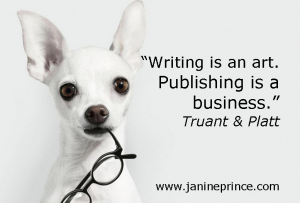![]() Before we move off the topic of debt, there are some positive things to share. I find this subject quite emotional – as I’m sure many people do – so let’s clear the air a little with some practicalities.
Before we move off the topic of debt, there are some positive things to share. I find this subject quite emotional – as I’m sure many people do – so let’s clear the air a little with some practicalities.
 In my past, I’ve been through the experience of some credit card debt going bad (which happened to coincide with some poor decisions about tax also coming home to roost). Out the other side of that experience I’m cautious about spending money I don’t have on hand. ‘Vigilant’ would not be too strong a word. ‘Terrified’ might even be appropriate on some days! I worry about it. I don’t really have much now and yet still I worry about it.
In my past, I’ve been through the experience of some credit card debt going bad (which happened to coincide with some poor decisions about tax also coming home to roost). Out the other side of that experience I’m cautious about spending money I don’t have on hand. ‘Vigilant’ would not be too strong a word. ‘Terrified’ might even be appropriate on some days! I worry about it. I don’t really have much now and yet still I worry about it.
I worry about you having it. I do. It is too much. Debt is hurting us. It is one of the heaviest shackles stopping us from living a life of deliberate liberation, and it is voluntary.
Some people seem to think of credit card debt as a kind of charity to themselves. ‘Thank you credit card for helping out for the cost of a pad thai on Saturday night!’ You might be out of cash and craving those sweet noodles, but actually, unless you’re as scrupulous at paying yourself back in full and as quickly as you’d expect any of your friends to be, in reality you’re in a Ponzi scheme with your bank, and the house never loses.
Let’s talk about getting out of debt. That’s a pretty obvious next step conversationally but let’s not go into paying down or clearing it off, not budgets. Not haggling over interest or swapping balances and accounts. Not how to expand or grow your income or start a business on the side. Those things are all great tactics and they can really help you but I’m not the right person to talk about those. Honestly, there’s just huge amounts of useful information and lots of knowledgeable, well-meaning people to help you with all those things online already. Hit up Doctor Google with a few simple questions and you’ll be inundated with options and links. It is easy to find an approach that works for you. Just be aware of anything that people are asking you to pay for!
What is there left to talk about? There’s a key truth to debt that hardly gets any headlines. You could be forgiven for thinking that it is a secret. It wasn’t bad luck that gave my phone number to a collection agency. It wasn’t not having education or a job or support if I’d asked for it or an understanding of how to do a budget. I was lazy, busy, a bit selfish, maybe arrogant that I could do it differently – you know – normal. Even so, when faced with the bottom line, despite having the kind of habits that meant a lotto win would end up as more debt, I knew this truth and I bet you do too. It is just one simple rule and it works. I warn you now, it’s a tough one. It is not sexy. It is not huge glittering fun.
It is this: live within your means.
I know, right? Bor-ring. I can feel your eyes rolling back in your head. Stay with me on this one. I think it is radical. Daring. In this age of rampant entitlement, what could be more personally and politically powerful than to disengage from the consumer culture except on occasions of deliberate choice? Okay, that might be a bit of a long bow to draw, but think about it. Why do we immediately reject this obvious truth? Because it requires decisions and choices. It implicitly asks us to do without some things. Our fear of missing out (so common now it just goes by ‘FOMO’) immediately gives us an eye-twitch but reality is all about limits. We are finite beings on a finite planet. Our time is finite, our income is very clearly finite. Knowing this, doesn’t it seem almost childish to continue to believe in ‘later there’ll be more’?
That’s not to say that there’s no such thing as hard work that pays off, or ideas that meet a need and create happy customers, or great services and products you can build and grow from your own capacity to learn and create. It is just that winning lotto isn’t a plan. There is no magical unicorn going to come along and poop golden nuggets onto your welcome mat. Once we face our limits we get to make informed decisions about how to spend our time and the resources we already have. It is not just reasonable, in this day and age it is revolutionary.
Next week I’ll share a tool that will give you a glimpse through your blind spot, or a whisper from your fairy godmother about your particular secrets and self-destructive habits with money. You can skip it if you’re scared, or ask someone to hold your hand.
We can get through this together.



